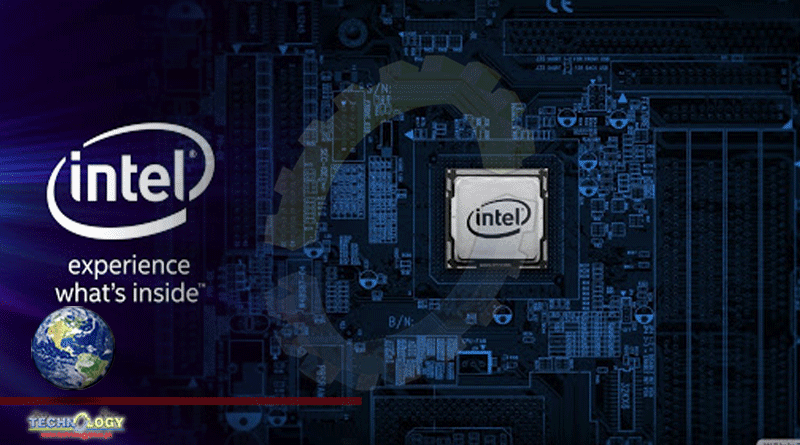Deep Link Allows Intel To Utilize Integrated Graphics, Dedicated Graphics, And Processor Simultaneously For Workloads Where Possible

Intel has announced some more details about its homegrown Xe MAX dedicated GPU and along with it a brand new platform technology: Intel Deep Link. Deep Link basically allows Intel to utilize the integrated graphics, dedicated graphics, and processor simultaneously for workloads where possible. Xe MAX combined with an iGPU beats out an NVIDIA MX 350 in graphics workloads and decimates the same in AI-related workloads.
Intel Xe MAX with Deep Link: Slightly better than MX350 in games, decimates an RTX 2080 in AI-related workloads using Deep Link
The Intel Iris Xe MAX discrete GPU features the same 96 EUs as its integrated counterpart but unlike the latter, it has a higher TDP envelope that can push the clock speed to 1.65GHz and also contains a dedicated 4GB memory. It features variable-rate shading and Intel DLBoost and works over PCIe 4.0. The core architecture is Intel Xe LP just like its integrated sibling.
Intel Iris Xe (iGPU) and Xe MAX (dGPU) are practically the same GPU so its not surprising that Intel wanted to find a platform technology that would allow them to pool their resources and beat out a competitor. Intel Deep Link is the name of that technology. It is a platform innovation that allows Intel to tap not only the integrated GPU and dedicated GPU together – but also the CPU itself. Compared to cross-vendor configurations (for example NVIDIA-Intel), only one device would run a specific workload.
We set out to redefine the role of discrete graphics in thin-and-light laptops and address a growing segment of creators who want more portability. Iris Xe MAX graphics and Intel® Deep Link technology serve as examples of the kind of platform-level innovation that Intel plans to bring to market in the future as we execute to our scalable Xe roadmap.”– Roger Chandler, vice president and general manager of Client XPU Product and Solutions in the Intel Architecture, Graphics and Software Group
What Deep Link Does: Deep Link aggregates multiple processing engines through a common software framework to bring new capabilities and better performance to PCs. This framework helps to unlock creativity in thin-and-light laptops by maximizing CPU performance, boosting artificial intelligence (AI) creation performance and taking industry leading encode to the next level.
How Deep Link Works: Deep Link technology brings together processing engines under a common software framework, allowing software developers to significantly boost content creation workload performance. Applications can scale certain workloads across integrated and discrete graphics. Examples include:
An additive AI capability that enables inferencing and rendering on both GPUs to accelerate content-creation workloads.A combination of industry-leading encode engines in each GPU through hyper encoding that allows the time to render out videos for reviewing or sharing.
The first Deep Link-enabled applications use Intel® Media SDK, Intel® Distribution of OpenVINO™ toolkit and Intel® VTune™ Profiler to access the full power of the platform. Developers will also be able to utilize Deep Link technology using Intel’s powerful crossarchitecture oneAPI toolkits. Developers interested in accessing Deep Link technology can sign up for future updates and information.
Intel Iris Xe MAX GPU gaming and AI benchmarks
No announcement would be complete without some first-party benchmarks and Intel does not disappoint on this count.
The Intel Iris Xe MAX notebook easily beats out NVIDIA’s MX350 in 8/10 scenarios given in this benchmark. I also appreciate the fact that it looks like Intel has tried not to cherry-pick benchmarks and actually give a few examples where the NVIDIA MX350 beats the Intel Xe MAX solution like Borderlands 3 and Gears Tactics. However, Intel Iris Xe MAX GPU is seen to offer more consistent performance throughout the gaming tiers and absolutely destroys the MX350 in some heavy AAA titles like Metro Exodus. Since it can achieve 30+ fps on most AAA titles on low-medium setting, I would say this is the first entry-level gaming solution from Intel in years.
AI and productivity-related workloads on the other hand are a completely different scenario. Since Intel’s Iris Xe MAX GPU already features DL Boost and on top of that Deep Link allows the notebook to distribute AI workloads to all three devices, an Xe MAX equipped notebook absolutely decimates its weight class and even hands out a solid beating to NVIDIA’s RTX 2080 flagship mobility GPU. In encoding, Intel’s benchmarks found the Intel Deep Link-based solution to be a resounding 78% faster than an NVIDIA RTX 2080!
Intel’s Deep Link technology is a nerd’s wet dream. The complete utilization of available resources with almost no wastage is exactly how things should be configured and embodies the ‘to-the-metal’ philosophy that has made consoles so powerful in the recent past. The best part is, we might actually see Deep Link enabled in some gaming applications since Intel was tightlipped but mentioned that they are working on adding more applications to the platform.
The Dynamic Power sharing also allows the company to fine tune performance (similar to AMD) in TDP constrained scenarios. Intel® Iris® Xe MAX graphics are available for Acer Swift 3x, Asus VivoBook Flip TP470 and Dell Inspiron 15 7000 2 in 1 starting today. These are the first devices to leverage 11th Gen Intel Core mobile processors, Intel Iris Xe MAX graphics and Intel Deep Link technology.
This news was originally published at WCCF Tech
